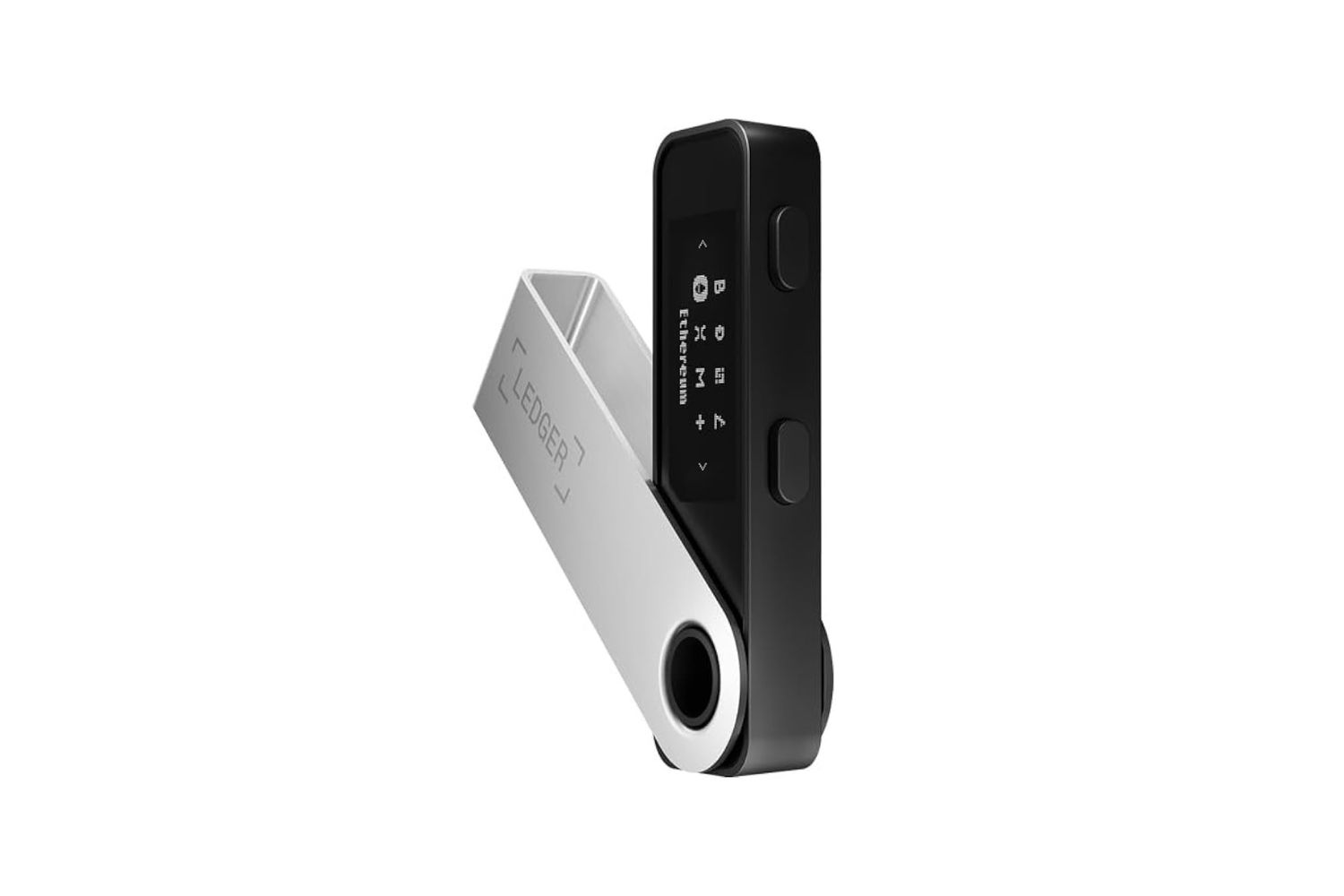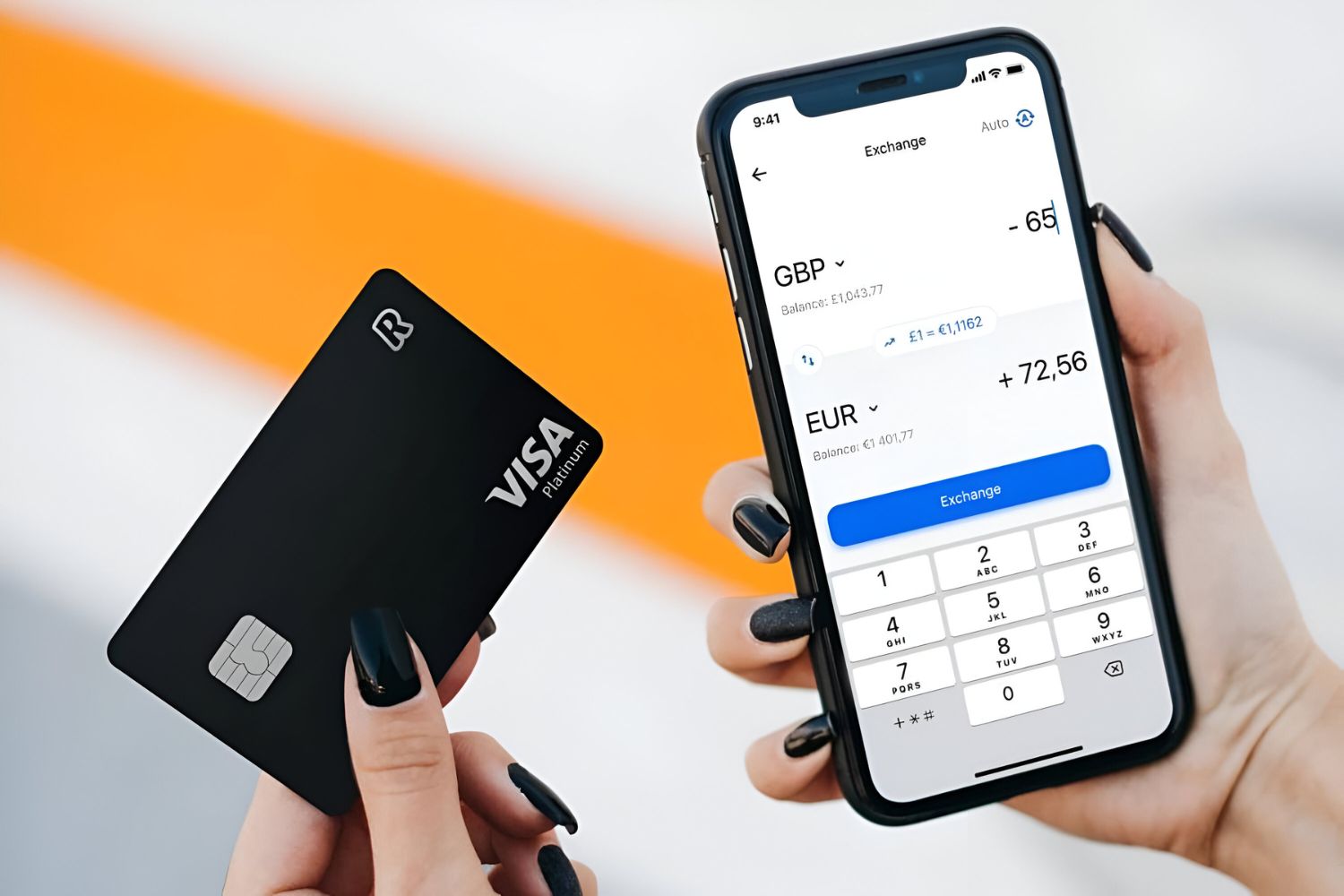Introduction
Choosing the right crypto wallet is essential for anyone venturing into the world of cryptocurrencies. With the market flooded with various wallet options, it can be challenging to determine which one is best suited for your needs. Whether you are a beginner or an experienced crypto investor, understanding the key factors to consider when selecting a wallet is vital.
Security, ease of use, compatibility, and accessibility are among the most crucial factors to take into account when choosing a crypto wallet. With the potential risks associated with digital assets, safeguarding your funds becomes paramount. Additionally, the convenience of accessing and managing your cryptocurrencies is equally important.
There are several types of crypto wallets available, each with its own set of advantages and features. The most common ones include mobile wallets, desktop wallets, web wallets, hardware wallets, paper wallets, and multi-signature wallets. Each type offers different levels of security and accessibility, catering to various preferences and requirements.
While there is no definitive answer to what is the “best” crypto wallet, as it ultimately depends on individual needs and preferences, this article will explore the key factors to consider when choosing a wallet. By understanding these factors, you will be equipped with the knowledge to make an informed decision and find a wallet that aligns with your specific needs.
Key Factors to Consider when Choosing a Crypto Wallet
When selecting a crypto wallet, there are several key factors that you should consider to ensure the security and convenience of your digital assets:
Security
The security of your crypto wallet is of utmost importance. Look for wallets that offer strong encryption and multi-factor authentication to protect your funds from hackers and unauthorized access. Additionally, consider wallets that provide seed phrase or private key backup options, allowing you to restore your wallet in case of loss or theft.
Ease of Use
An intuitive and user-friendly interface is crucial for a crypto wallet. Look for wallets that make it easy to send, receive, and manage your cryptocurrencies. A visually appealing and well-designed wallet can enhance the user experience, especially for beginners.
Compatibility
Ensure that the wallet you choose is compatible with the cryptocurrencies you own or plan to own. Different wallets support different types of cryptocurrencies, so check for compatibility before making a decision. Additionally, consider whether the wallet supports multiple platforms such as mobile, desktop, or web, based on your preferred method of accessing your funds.
Accessibility
Consider how easily you can access your crypto wallet when needed. Some wallets require downloading specific software, while others can be accessed through a web browser or mobile application. Choose a wallet that aligns with your lifestyle and access needs, ensuring that you can manage your funds conveniently.
Community Support
Consider the reputation and community support of the wallet you are considering. Look for wallets that have a large and active user base, as they often receive regular updates, bug fixes, and provide better overall support. Joining forums, online communities, and reading reviews can help gauge the wallet’s credibility and user satisfaction.
By considering these key factors, you can narrow down your options and find a crypto wallet that meets your requirements. Remember that it’s essential to prioritize security and usability to ensure the protection and convenience of your digital assets.
Mobile Wallets
Mobile wallets are one of the most popular options for managing cryptocurrencies on the go. These wallets are designed specifically for smartphones and offer a convenient way to access and control your digital assets.
One of the key advantages of mobile wallets is their portability. With a mobile wallet installed on your smartphone, you can carry your cryptocurrencies with you wherever you go. This allows for easy access to your funds, enabling you to make quick transactions and monitor your portfolio in real-time.
Mobile wallets are available for both iOS and Android devices. They usually come in the form of downloadable applications from app stores. These wallets provide a user-friendly interface, making it easy to send and receive cryptocurrencies using QR codes or wallet addresses.
When selecting a mobile wallet, security should remain a top priority. Look for wallets that offer strong encryption and provide the option to set up PIN codes or fingerprint authentication. Additionally, consider wallets that allow users to control their private keys, as this gives you full ownership and control over your funds.
Popular mobile wallet options include Trust Wallet, Coinbase Wallet, and Exodus. These wallets support a variety of cryptocurrencies and offer features such as in-app DApps (decentralized applications) integration and staking capabilities.
It’s important to note that while mobile wallets provide convenience, they are susceptible to potential risks associated with smartphones, such as loss, theft, or malware attacks. It’s crucial to secure your mobile device with a password or biometric lock and regularly update your wallet app to ensure the latest security measures are in place.
In summary, mobile wallets offer a portable and user-friendly solution for managing cryptocurrencies on your smartphone. With proper security measures in place, they can provide a convenient and secure way to access and control your digital assets while on the move.
Desktop Wallets
Desktop wallets are cryptocurrency wallets that are installed and run on your computer. These wallets offer a high level of security and control over your digital assets. If you regularly use your computer for managing your cryptocurrencies, a desktop wallet might be the ideal choice for you.
One of the major advantages of desktop wallets is that they provide offline storage, also known as cold storage. This means that your private keys are stored locally on your computer, reducing the risk of online threats and hacking attempts. Desktop wallets are considered more secure compared to online or web-based wallets.
Desktop wallets typically have advanced security features such as encryption, password protection, and the option to back up your wallet. It’s important to choose a well-established and reputable desktop wallet to ensure the security of your funds.
One popular desktop wallet is Electrum, which is known for its robust security and compatibility with multiple cryptocurrencies. Other notable options include Exodus and Atomic Wallet, which offer sleek and intuitive interfaces along with support for a wide range of digital assets.
Desktop wallets are available for various operating systems, including Windows, macOS, and Linux. They offer a comprehensive range of features, such as the ability to manage multiple wallets, view transaction histories, and even participate in staking or mining activities.
However, one drawback of desktop wallets is that they are not as portable as mobile wallets. You can only access your funds from the computer on which the wallet is installed. If you frequently use different computers or require easy access to your funds on the go, a desktop wallet might not be the most suitable option for you.
It’s crucial to secure your desktop wallet by regularly updating your computer’s security software, using strong passwords, and keeping your operating system up to date. Additionally, consider creating a backup of your wallet’s private keys or seed phrase and storing it securely in offline storage.
To summarize, desktop wallets provide a high level of security and control over your digital assets. They are suitable for users who primarily manage their cryptocurrencies from their personal computers and prioritize offline storage and enhanced security features.
Web Wallets
Web wallets, also known as online wallets, are cryptocurrency wallets that are accessed through a web browser. These wallets offer convenience and accessibility, allowing users to manage their digital assets from any device with an internet connection.
One of the key advantages of web wallets is their ease of use. They do not require any software installation and can be accessed directly through a web browser. This makes them accessible to users regardless of their operating system or device. Web wallets also offer a user-friendly interface, making it easy to send, receive, and manage your cryptocurrencies.
Web wallets typically store your private keys on their servers, which means that you are relying on the wallet provider’s security measures to protect your funds. It is crucial to choose a trustworthy and reputable web wallet that has robust security protocols in place, such as SSL encryption and two-factor authentication.
Some popular web wallet options include MetaMask, MyEtherWallet (MEW), and Coinbase Wallet. These wallets support a wide range of cryptocurrencies and provide additional features such as integration with decentralized applications (DApps) and token swap functionalities.
While web wallets offer convenience, it’s important to be cautious of potential risks. Since your private keys are stored online, you are vulnerable to hacking attempts or phishing attacks. It’s essential to maintain proper security practices, such as using strong passwords, enabling two-factor authentication, and regularly monitoring your wallet activity.
Web wallets are suitable for users who require the flexibility of accessing their funds from different devices and locations. However, it’s important to balance convenience with security considerations and ensure you choose a reputable web wallet with a strong track record of user trust and security.
When using a web wallet, it is always recommended to follow best practices such as keeping your software and browser updated, avoiding accessing your wallet on public Wi-Fi networks, and being cautious of phishing attempts or suspicious links.
In summary, web wallets provide a convenient way to access and manage your cryptocurrencies from any device with an internet connection. They offer a user-friendly interface and compatibility across different operating systems. However, it is crucial to choose a trusted web wallet and maintain proper security measures to safeguard your digital assets.
Hardware Wallets
Hardware wallets are physical devices designed to securely store your cryptocurrencies offline. These wallets offer the highest level of security and protection for your digital assets, making them an ideal choice for long-term storage.
One of the major advantages of hardware wallets is that they keep your private keys offline, away from the reach of potential hackers or malware. The private keys are stored securely within the device and never exposed to the internet, significantly reducing the risk of unauthorized access or theft.
Hardware wallets typically come in the form of USB devices and feature built-in encryption and PIN protection. To initiate a transaction, you would need to physically connect the device to a computer or mobile device, verify the transaction details on the device’s screen, and confirm the transaction using the device’s buttons or touch screen.
Popular hardware wallet options include Ledger Nano S, Trezor Model T, and KeepKey. These wallets support a wide range of cryptocurrencies and offer additional security features such as the ability to set up multiple PIN codes or passphrases for added protection.
One drawback of hardware wallets is their cost compared to other types of wallets. Hardware wallets typically come with a price tag, but they are considered a worthwhile investment for anyone serious about securing their digital assets.
While hardware wallets are highly secure, it’s important to keep them physically safe as well. Store your hardware wallet in a secure location, such as a safe or a locked drawer, to protect it from theft or damage.
One consideration when utilizing a hardware wallet is the need for backups. Hardware wallets generate a seed phrase when initialized, which can be used to restore your wallet in case of loss or damage. It’s essential to carefully write down and store this seed phrase in a secure location separate from the hardware wallet itself.
In summary, hardware wallets provide the highest level of security for your cryptocurrencies. They keep your private keys offline and require physical interaction to authorize transactions, reducing the risks associated with online threats. While they may come with a cost, hardware wallets offer peace of mind for those seeking long-term storage of their digital assets.
Paper Wallets
Paper wallets are an offline method of storing your cryptocurrencies. They are essentially a physical printout or handwritten document that contains the public and private keys necessary to access and manage your digital assets.
One of the primary advantages of paper wallets is their high level of security. Since the keys are stored on a physical piece of paper, they are not susceptible to hacking or online attacks. As long as the paper is kept in a secure and private location, it is highly resistant to digital threats.
Creating a paper wallet typically involves generating a pair of cryptographic keys, one public and one private, and printing or writing them down on a piece of paper. The printed or handwritten information can be used to access and transfer cryptocurrencies when needed.
To enhance the security of paper wallets, it is essential to generate the keys offline, ideally on a device that has never been connected to the internet. This mitigates the risk of potential malware or keyloggers compromising the security of the keys.
It’s important to note that paper wallets require careful handling and storage. Since they are physical items, they can be easily lost, damaged, or stolen. It is crucial to keep your paper wallet in a safe and secure location, such as a locked drawer, safe deposit box, or a physical vault.
When using a paper wallet, it’s recommended to keep multiple copies in separate secure locations or create multiple paper wallets for different cryptocurrencies. Additionally, consider laminating the paper or using tamper-evident envelopes to provide extra protection against physical damage or tampering.
One potential drawback of paper wallets is the complexity and potential for user error when generating and using them. The process of generating the keys and transferring funds can be more involved compared to other types of wallets. It’s important to follow the instructions carefully and double-check the accuracy of the printed or written keys to avoid any mistakes.
In summary, paper wallets offer a highly secure offline storage solution for your cryptocurrencies. They eliminate the risk of online attacks and hacking attempts but require careful handling and storage. Paper wallets are an excellent option for those seeking a physical, tangible way to store and protect their digital assets.
Multi-Signature Wallets
Multi-signature wallets, also known as multisig wallets, are a type of cryptocurrency wallet that require multiple signatures to authorize transactions. This unique feature enhances the security and trustworthiness of the wallet, making it an attractive option for individuals or organizations managing large amounts of digital assets.
The idea behind multi-signature wallets is to distribute the responsibility of approving transactions among multiple parties. Instead of relying on a single private key, transactions from a multi-signature wallet require the cooperation and validation of multiple predetermined signatories.
For example, a multi-signature wallet might require two out of three signatories to sign off on a transaction before it can be executed. This means that even if one private key is compromised or unavailable, the transaction cannot proceed without the required number of signatures.
This unique feature significantly reduces the risk of funds being misused or stolen. It adds an extra layer of security by allowing users to specify the number of required signatories and distribute the private keys among trusted individuals or entities.
Multi-signature wallets can be customized based on specific needs, with options to involve multiple parties, various combinations of signatures, and different thresholds for transaction approval. This flexibility allows for a higher level of control and security when managing cryptocurrencies.
One popular implementation of multi-signature wallets is the use of hardware wallets in combination with other forms of authentication, such as mobile apps or biometric devices. This provides an additional layer of security and reduces the risk of a single point of failure.
It is important to note that multi-signature wallets can be more complex to set up and manage compared to other types of wallets. The coordination and communication among signatories are vital for seamless transaction approval. However, the added security and peace of mind make it a worthwhile option for those seeking enhanced control and protection of their digital assets.
Popular multi-signature wallet providers include Electrum, BitGo, and Ledger Live. These wallets offer customizable options for setting up multi-signature accounts and provide intuitive interfaces for easy management.
In summary, multi-signature wallets offer an advanced level of security and control by requiring multiple signatures to authorize transactions. This feature reduces the risk of unauthorized access or theft and allows for a higher level of trust when managing cryptocurrencies. While setting up and managing multi-signature wallets may require more effort, the enhanced security measures make it a preferred choice for individuals or organizations with significant digital asset holdings.
Conclusion
Choosing the right crypto wallet is crucial for securely managing your digital assets. When making this decision, it is essential to consider factors such as security, ease of use, compatibility, accessibility, and community support.
Mobile wallets provide the flexibility of managing cryptocurrencies on the go, while desktop wallets offer a high level of security and control. Web wallets offer convenience and accessibility, but require users to trust the wallet provider’s security measures. Hardware wallets provide the highest level of security through offline storage, while paper wallets offer an offline, physical solution. Multi-signature wallets distribute transaction approval among multiple parties, enhancing security and control.
Ultimately, the best crypto wallet for you depends on your individual needs and preferences. It is important to choose a wallet that aligns with your desired level of security, ease of use, and accessibility. Additionally, staying informed about the latest security practices and regularly updating your wallet software can help safeguard your digital assets.
Remember to research and choose reputable wallet providers, read user reviews, and seek recommendations from trusted sources. It is also beneficial to join cryptocurrency communities and forums to learn from the experiences of others.
By considering the key factors outlined in this article, you can make an informed decision and select a crypto wallet that meets your specific requirements. Whether you opt for a mobile wallet that allows you to manage your assets on the go, a hardware wallet for maximum security, or any other type of wallet, ensuring the protection and accessibility of your digital assets should be your top priority.

























